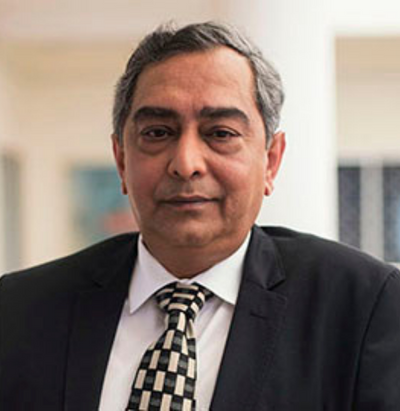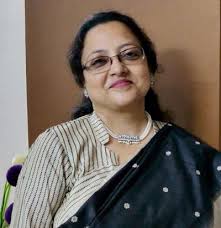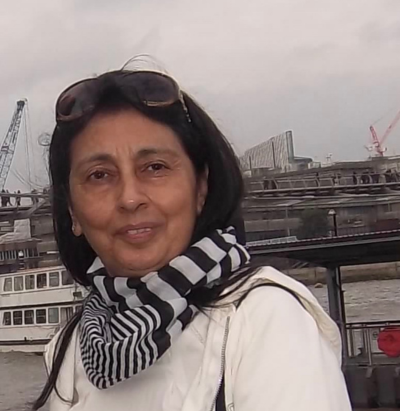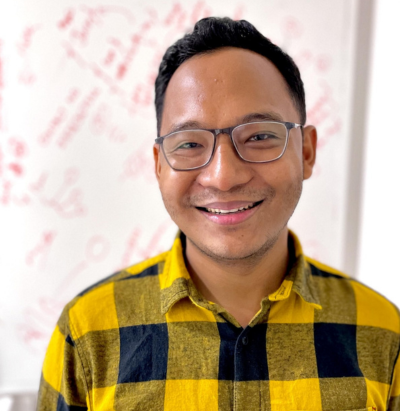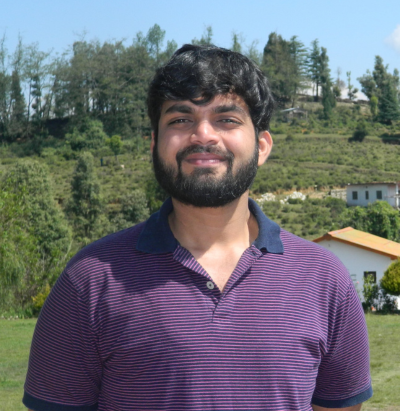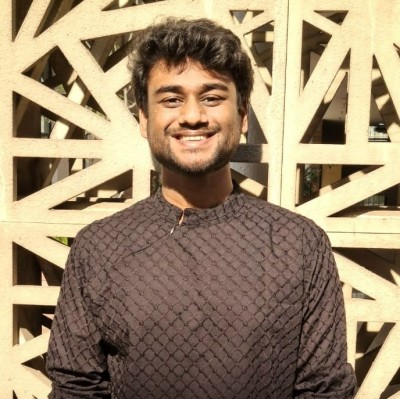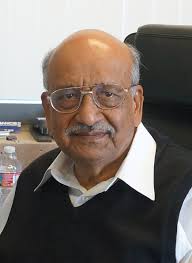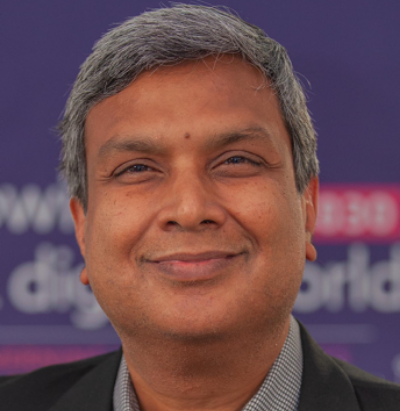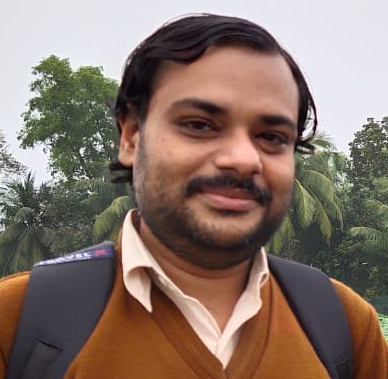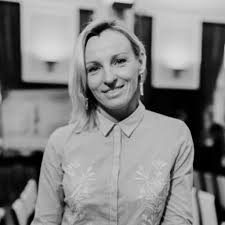People
Our interdisciplinary team of researchers, scientists, software engineers, data scientists, and mentors:
Principal Investigators
Dr. Partha Pratim Das is a Professor at the Department of Computer Science and the Director of the Center of Data Science and Analytics (CDSA) at Ashoka University. Partha has over 24 years’ experience in teaching and research, and about 13 years’ experience in Software Industry. Since 2014 Partha has been involved in research, development and education on impact projects using huge volumes of integrated and curated data and tools of AI. From 2015 to 2022, he initiated and led the development of National Digital Library of India (NDLI Project of Ministry of Education, India to create an open educational library having about 100 million+ free contents organized by educational needs of the users. In digital heritage, he has been developing curated repository of audios and videos for Indian Classical Dance (Bharatanatyam) for AI-driven research in modelling, preservation and tutoring. Since joining Ashoka in July 2022, Partha has been leading the Indian food knowledge graph for personalized digital health project.
Dr. Lipika Dey is a Professor of Computer Science at Ashoka University. She was earlier a Chief Scientist at Tata Consultancy Services (TCS), Research, where she was heading research on the theme of Economic and Financial Intelligence. Her research interests are in the areas of Artificial Intelligence, Machine Learning, Natural Language Processing and Data Analytics.
She has made significant contributions towards applied research in Natural Language Processing (NLP) that has led to the adoption of Language Technologies for commercial purposes in a multitude of large industries. She has been consistently interested in building and using knowledge graphs for causal reasoning and decision-making purposes, especially for Healthcare, Financial and Sustainability data. Her contribution towards language technologies has led to several publications and patents and also earned her a fellowship at Indian National Academy of Engineering in 2021. She was also awarded the “Distinguished Scientist” by TCS Research in 2012. Lipika holds a PhD in Computer Science and Engineering, MTech in Computer Science and Data Processing and 5-year Integrated MSc in Mathematics - all from IIT Kharagpur. Lipika has been an active member of ACM-W from its inception in India and is a champion of all causes related to women in STEM.
Dr. Geeta Trilok-Kumar Geeta is currently a Wellcome Trust Senior Fellow in Public health, a Fellow of Delhi School of Public health, Institute of Eminence, Delhi University and a senior faculty fellow at Ashoka University where she is actively involved with Trivedi School of BioSciences and Koita Centre for Digital Health. She did her graduation from Miranda House, University of Delhi, her Masters from University of Guelph, Canada on a full fellowship, and PhD jointly from AIIMS and Delhi University in 2002. Subsequently she went to London School of Hygiene and Tropical Medicine for her Post-doctoral work on a Commonwealth Fellowship.
Geeta was the former Director of Institute of Home Economics, and the Head of the Department of Home Science at University of Delhi. In the last twenty years post her PhD, Geeta has received several large National and International grants such as from Medical Research Council, UK; Nutrition Tier Monde, Brussels; Sight and Life, Switzer- land; UGC-UKIERI thematic partnership from British Council, UK; UGC-New Zealand Research Council grant, as well as large grants from Indian funders like DBT, ICMR, to name a few. Her work has been published in prestigious scientific high impact journals like British Medical Journal and lancet Endocrinology.
Research and Development
Dr. Rintu Kutum is a Faculty Fellow/Data Scientist at the Department of Computer Science, Ashoka University. He was the project coordinator (postdoctoral fellow) of “AI/ML for Health- care” theme under the “City Knowledge Innovation Cluster – Delhi Research Implementation and Innovation” project at the Center for Excellence in Healthcare, IIIT-Delhi. His Ph.D. was in Machine Learning, Genomics, and Gene regulatory Networks from CSIR-Institute of Genomics & Integrative Biology, New Delhi. He uses open-source scientific computing languages such as R, Python, Julia etc., to accelerate his scientific research and promote via training.
Rintu has almost 10 years of experience in applied biological ontology and has been working in biomedical ontologies to improve interoperability human health. At Ashoka, he leads the Augmented Health Systems group, where the focus of the group is to design, build and deploy augmented health systems to improve patient outcomes through digital technologies and collective science. Recently, Rintu acquired the GKII-Ashoka University Breakthrough Research Grant to transform unstructured electronic/digitized health data into interoperable common data models with open-source large language models. He has been an eLife Ambassador during 2018-2019 and 2019-2020, and mainly worked on “Reproducibility research through Open-Source Scientific Computing” and is one of the members, and instructor for Reproducibility for Everyone (R4E) Initiative.
Dr. Mayank Garg Mayank is a Simons Early Career Fellow at Ashoka University, pursuing quantitative health research to explore the heterogeneity of ICU disorders like Sepsis and ARDS. He is a physician scientist who completed his medical graduation and clinical training from IPGME&R and SSKM Hospital, Kolkata, India. He gained brief experience in intensive care before switching to experimental research at CSIR-Institute of Genomics and Integrative Biology (CSIR-IGIB), Delhi, India. He pursued a PhD here, working with murine models of Acute Lung Injury, dissecting the molecular mechanisms involved in inflammation.
Realizing the importance of context in biomedical research, Mayank aims to derive mechanisms to leverage data science in a clinically relevant manner, and to validate them using contextual application of experimental models. He believes in the potential of digital transformation in personal empowerment, for improving health-care, sick-care, and clinical research. He is collaborating on a project to develop a digital framework to assist data collection and aid analysis for personalized lifestyle medicine. He plans to leverage the power of LLMs integrated with such digital frameworks for healthcare and healthcare research. He strongly advocates for collaborative growth and strict ethical standards as the foundation for advancing science.
Saransh Gupta Saransh is a senior software developer in the ‘Food Computing’ group at Ashoka Mphasis Lab and a learning coordinator for AshokaX’s ‘Data Science for Social Impact (public health & climate change)’ program targeted at working professionals. He studied Computer Science at BITS Pilani and worked as a software engineer at Symantec Corporation for 3 years where his responsibilities included research & software development, optimizing the algorithmic flows, mitigating security risks, and improving the efficacy of functional security products. His newfound research interests in language, cognition, computation, and society led him to pursue the Young India Fellowship and complete an interdisciplinary Masters in Computer Science and Psychology, both at Ashoka University where he worked on the problem of ‘emotion recognition in conversations’ for his graduate thesis. His current work pertains to software R&D, data mining, large-language models, machine learning, ontology design and building a semantic knowledge graph for Indian food.
Advisors and Mentors
Dr. Ramesh Jain is a Professor Emeritus and the founding director of UCI Institute for Future Health at University of California, Irvine (US) and a Distinguished Associated Faculty at Ashoka University. He has been an active researcher in Computer Vision, Artificial Intelligence, Multimedia Computing, Experiential computing, and Digital Health. While at the University of Michigan, Ann Arbor, he founded and directed the AI Laboratory in 1987; and at the University of California, San Diego, he founded the Visual Computing lab in 1995. He was also the founding Editor-in-Chief of IEEE MultiMedia magazine and Machine Vision and Applications journal and has co-founded VicaraHealth and social entrepreneurship companies in AI for Health such as Personicle.org and HealthUnity.org.
Ramesh is an ACM, IEEE, AAAS, IAPR, AAAI, and SPIE Fellow and his team’s research has been recognized in the ACM SIGMM Technical Achievement Award 2010, IEEE TCMC Impact award and many other similar awards. In 2023, Ramesh received the ACM Distinguished Service Award for establishing the ACM Special Interest Group on Multimedia Systems (SIGMM), and for outstanding leadership and sustained services to ACM and the computing community for the past four decades. His current research is in building computing and data-driven Navigational approaches for Future Health.
Dr. Anurag Agrawal is a physician-scientist with experience in conducting bench-based as well as field-based research. Dean of the Trivedi school of Biosciences, and the former head of a national lab (Institute of Genomics and Integrative Biology), he has experience with highly interdisciplinary teams and has also been highly productive as a researcher (h-index 70, i10 index-153). His larger interests in digital transformation of health, where he has co-chaired the Lancet-Financial Times commission for digital health future, complement the efforts for data empowerment of food knowledge.
Collaborators
Dr. Debarshi Kumar Sanyal serves as an Assistant Professor at the Indian Association for the Cultivation of Science, Kolkata, India where he is affiliated with the School of Mathematical and Computational Sciences (SMCS). He holds a Bachelor of Engineering in Information Technology and a PhD in Engineering from Jadavpur University. With experience spanning various esteemed technology firms such as Infosys, Interra Systems, and Xilinx (now AMD), he has significantly contributed to software development projects for numerous international clients. He has also served at the National Digital Library of India, leveraging advanced machine learning algorithms to enhance access to digital educational materials.
Debarshi’s research interests encompass machine learning and natural language processing, focusing particularly on topic modelling, knowledge graphs, automatic question-answering and semantic analysis of scientific literature. He has presented his work in esteemed conferences including JCDL, ECIR, EACL, CIKM, COLING, and PAKDD, showcasing his expertise and contributions to the field. He is also interested in the theoretical understanding of deep neural networks and in the past, he has worked on mobile computing and wireless networks.
Dr. Maija Kāle, a Latvian researcher, recently received her PhD from the Faculty of Computer Science at the University of Latvia. Her main research interests are in the area of food computing, which includes the analysis of food systems, big data related to food, and the language used to describe food. Maija’s work aims to improve the understanding of food-related data and its impact on society, both from an environmental and personal health perspective. In her day-to-day work, Maija works at the Nordic Council of Ministers office in Latvia as a sustainability and digitalisation advisor, working on topics such as the future of urban agriculture, the bio-economy and digital inclusion.
Food Computing, Big Data, and Sustainability Researcher Read More
Students and Interns
Capstone Project (Monsoon 2024)
| Name | Year of study | Subject of study |
|---|---|---|
| Abhivyakti Shrivastava | 4th year | Computer Science |
| Mansher Singh | 4th year | Computer Science |
| Jigyansu Rout | 4th year | Computer Science |
Internship (Summer 2024)
| Name | Year of study | Subject of study |
|---|---|---|
| Vidur Kaushik | 4th year | Computer Science |
| Prayag Pandey | 4th year | Computer Science |
| Aryan Bhandari | 3rd year | Computer Science |
| Nirved Jain | 2nd year | Computer Science |
| Sashwat Dhanuka | 2nd year | Computer Science |
| Aaryan Shah | 4th year | Computer Science |
| Yashas Shende | 3rd year | Computer Science |
| Manasa Kondaboiena | 2nd year | Computer Science |
| Abhivyakti Shrivastava | 4th year | Computer Science |
| Fiona Arora | 4th year | Computer Science |
| Prisha Bajaj | 3rd year | Computer Science |
| Aaryan Nagpal | 4th year | Computer Science |
| Kabir Vohra | 2nd year | Computer Science |
| Devansh Srivastava | 2nd year | Computer Science |
| Jigyansu Rout | 4th year | Computer Science |
| Sarthak Rathi | 2nd year | Computer Science |
Food Computing Course (Monsoon 2023)
| Name | Year of study | Subject of study |
|---|---|---|
| Manish Yadav | 3rd year | Computer Science |
| Shushant Rajak | 3rd year | Computer Science |
| Krish Avalani | 3rd year | Computer Science |
| Santripta Sharma | 3rd year | Computer Science |
| Uttkarsh Kohli | 3rd year | Computer Science |
| Dilshad Alam | 3rd year | Computer Science |
| Vikas Kumar | 3rd year | Computer Science |
| Gautam Ahuja | 3rd year | Computer Science |
| Aaryan Nagpal | 3rd year | Computer Science |
| Abhivyakti Srivastava | 3rd year | Computer Science |
| Kappil Antil | 3rd year | Computer Science |
| Hazim Bin Fayaz | 3rd year | Computer Science |
Internship (Summer 2023)
| Name | Year of study | Subject of study |
|---|---|---|
| Elijah Samuel | 4th year | Computer Science |
| Nishtha Das | 4th year | Computer Science |
| Allen Binu Alex | 4th year | Computer Science |
| Gautam Ahuja | 3nd year | Computer Science |
| Aaryan Nagpal | 3rd year | Computer Science |
| Himangi Parek | 2nd year | Computer Science |
Internship (Monsoon 2022 to Spring 2023)
| Name | Year of study | Subject of study |
|---|---|---|
| Manish Rajani | 4th year | Computer Science |
